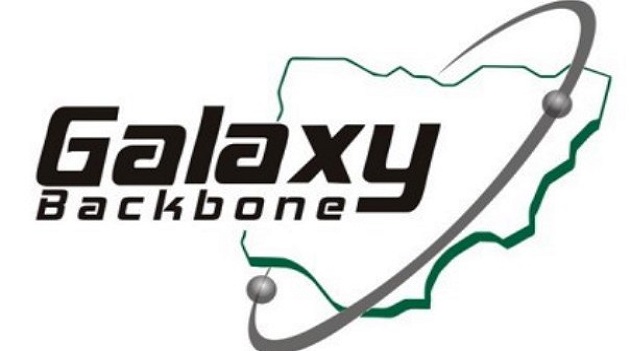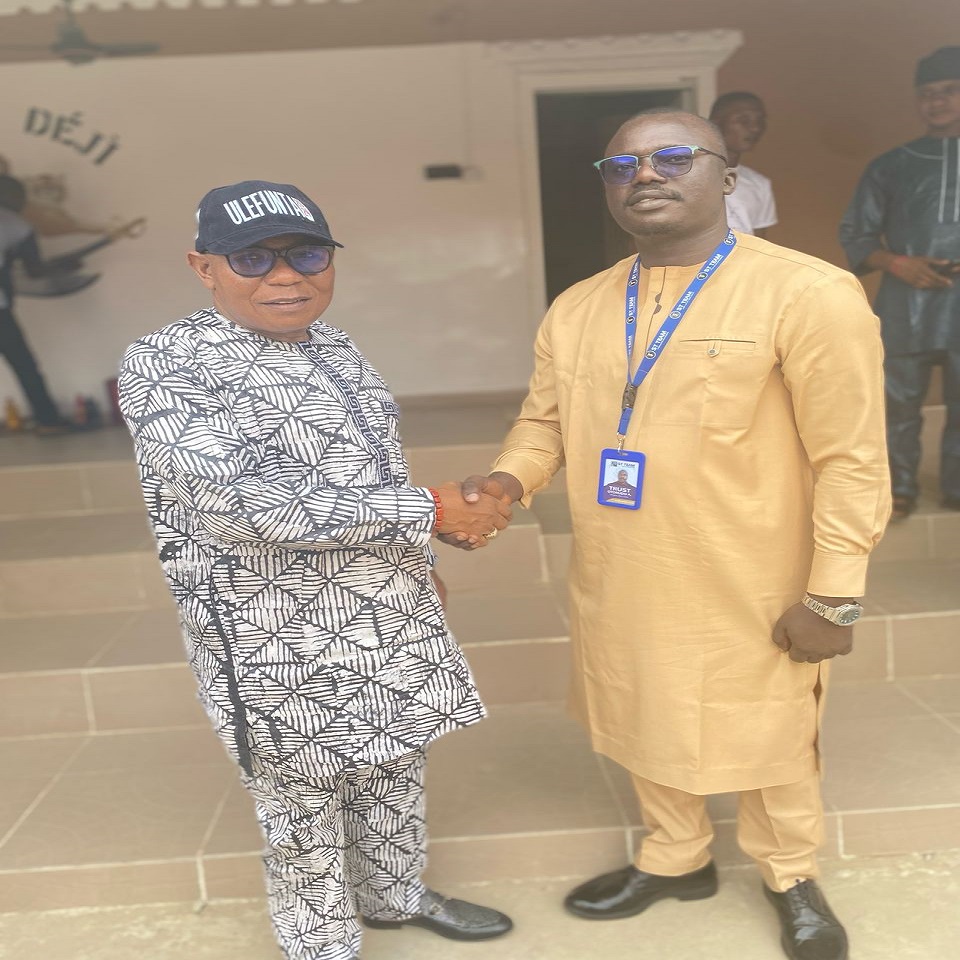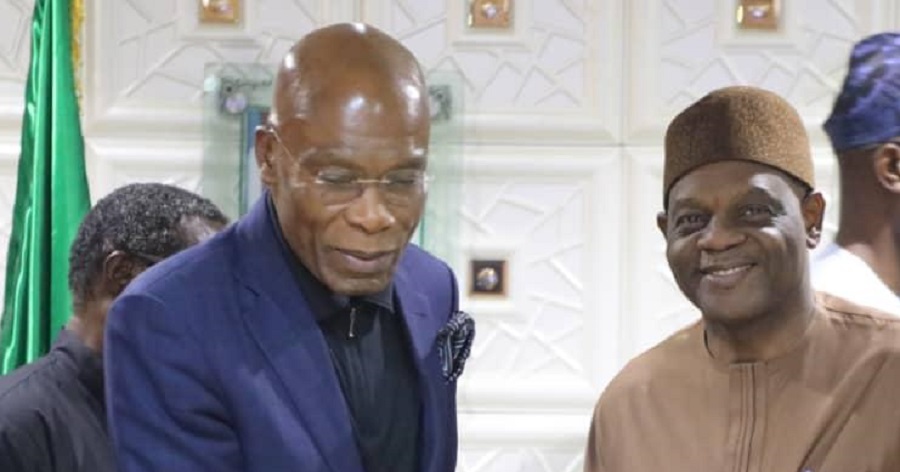News
Cybercriminals Turn to Deepfakes, Target Enterprise Networks

The year 2020 will see a new level of cyber-attacks – fake audio-visuals are forecast to be increasingly used by criminals as a social engineering tactic to extort money from companies and individuals.
This is according to security experts, who warn that deepfakes will transition from being predominantly used to create fake celebrity pornographic videos to the new threat used to sabotage enterprises for financial gains.
Anna Collard, founder and MD of KnowBe4 company Popcorn Training, says deepfakes are spilling beyond the world of celebrity cyber bullying and into company systems.
“Most deepfake technologies use existing media, video or audio typically to train an AI to create a virtual model of the item they want to change. While they can be used for entertainment in applications such as those on phones that swap faces, they can also be used for deception and fraud, to deceive employees into transferring funds or making critical decisions.
“Imagine getting a phone call or voicemail from an executive asking you to transfer money into a bank account. If you believe the person calling is the executive, why would you question the request?” Collard asks.
According to experts, only one social media profile picture is sufficient to create a deepfake video.
Deepfake can also be used for anything from traditional blackmail of politicians, to election influencing through releasing fake videos of candidates, to cyber bullying victims.
According to Forrester’s 2020 Predictions, deepfakes alone will cost businesses over a quarter of a billion dollars, as attackers use AI, machine learning and natural language tools to generate fake audio and video designed to deceive employees into releasing company funds.
Jonathan Miles, head of strategic intelligence and security research at Mimecast, says in the same ways as threat actors impersonate e-mail addresses, domains, subdomains, landing pages, Web sites, mobile apps, and social media profiles, deepfakes are emerging as a new threat, targeting enterprises.
“Deepfake attacks, or voice phishing attacks, are an extension of business e-mail compromise (BEC) and have introduced a new dimension to the attacker’s arsenal. This methodology is becoming more prevalent as an additional vector used for eliciting fraudulent fund transfers.
“Many people are aware of fake videos of politicians, carefully crafted to convey false messages and statements that call their integrity into question. But with companies becoming more vocal and visible on social media, and CEOs speaking out about purpose-driven brand strategies using videos and images, there is a risk that influential business leaders will provide source material for kicking off possible deepfake attacks,” he explains.
According to security firm Trend Micro, deepfake ransomware is among the top ten security trends to watch out for in 2020.
Deepfake audio fraud is a new cyber attack tool, further highlighting how AI can be abused by cyber criminals to make scams harder to detect, often used alongside BEC scams, notes the report.
“For years, email-based scams have been largely perpetrated by fraudsters in West Africa – and we do not expect this to change. We do foresee fraud advancing in 2020, with AI technology being used to create highly believable counterfeits in image, video, or audio format that depict individuals saying or doing things that did not occur.
“The rise of deepfakes raises concern. It inevitably moves from creating fake celebrity pornographic videos to manipulating company employees and procedures.”
This was exemplified when a fake, AI-generated voice of an energy firm’s CEO was used to defraud the company of $243 000.
Experts also believe newsrooms, journalists in particular, could also become a prime target for deepfake creators.
Preventing deepfakes
According to Reuters, China has introduced a new lawgoverning video and audio content online, banning the publishing and distribution of “fake news” created with technologies such as AI and virtual reality, effective from January 2020.
Google, in partnership with Jigsaw, has released a vast dataset of deepfake videos to help researchers in detecting forgeries. It includes 3 000 AI-generated videos that were made using various publicly available algorithms.
Collard believes as scammers constantly seek new ways of earning trust from their victims, the crime is expected to also be increasingly used as part of online dating scams.
News
FG Inaugurates Board of Galaxy Backbone

The Federal Government has inaugurated the new Board of Directors of Galaxy Backbone Limited (GBB). The board’s mandate is to lead Nigeria’s digital transformation in Information and Communication Technology (ICT) infrastructure and services.

It will support Federal Government Ministries, Departments, and Agencies (MDAs) in a fast-changing landscape.
George Akume, Secretary to the Government of the Federation, led the inauguration. He emphasised the government’s commitment to making GBB more agile, responsive, and impactful. The aim is to drive national digital public infrastructure and service delivery. This was according to a statement by Segun Imohiosen, Director of Information and Public Relations.
The board has George Akume as Chairman. Its members include Rabi’a Adamu Waziri from the Petroleum Technology Development Fund (PTDF), Abubakar Abdulqadir Maje from the Joint Stock Association (JSA), Kemi Owonubi from the Ministry of Finance Incorporated (MOFI), and Margareth Ebute from the Ministry of Communications and Digital Economy.
Other members are Ibrahim Adeyanju, Olusegun, Olumbe Akinkugbe, Sanni Ibrahim Mohammed, and Adama Pindar from Galaxy Backbone Limited.
In his acceptance speech, Prof. Ibrahim Adepoju Adeyanju, Managing Director of Galaxy Backbone Limited, assured that the board will focus on sustainability. He said it plans to realign its vision and build a strong foundation for achieving strategic goals.
He also noted that within one year, the agency developed its Integrated Digital Transformation Strategy (IDTS). This strategy will run from 2025 to 2028.
News
ST Team Partners with Deji of Akure to Boost Agriculture and Food Security in Ondo State

Smart Treasure (ST Team) has honored the Deji of Akure, His Royal Highness Ọbá Aladetoyinbo Ogunlade Aladelusi, Odundun II, CFR, with a plaque of recognition for his dedication to the welfare of his subjects.

The presentation was made at the monarch’s palace in Akure by a delegation led by Instructor Luke Mbadugha from the Lagos Operations Center.
The visit was part of ongoing discussions on a partnership aimed at boosting agriculture in Akure, Ondo State.
The initiative, spearheaded by the ST Team, seeks to ensure the availability of farmland for agricultural purposes.
Under the arrangement, the ST Team will provide seedlings and manpower, while a significant portion of the proceeds will be distributed to the indigenes at no cost.
The remaining proceeds will support the administrative operations of the ST Team.
In his response, Ọbá Aladetoyinbo announced the allocation of a parcel of land at Ofosu, along the Ondo-Benin Road, for the project.
He described the initiative as a commendable effort to enhance food security for both the local community and the nation.
The monarch also called for a follow-up meeting to facilitate the assessment of the land for the project’s commencement.
Meanwhile, farming activities are set to resume at Aladodo Isikan in Akure South Local Government Area, another site designated for the agricultural project.
The four-acre land will be used to cultivate crops such as yam, cassava, plantain, and maize. A test run of maize planting began on April 9, 2025, with expectations of harvesting in three months.
Kabiesi Akinwunmi Adekanmbi Obey, the monarch of Olulero Okelero, Onitan Isikan, lauded the ST Team for their commitment to ensuring food availability.
He emphasized the importance of agriculture, stating, “Whoever brings food brings life.”
The ST Team, an investment platform dedicated to reducing poverty in Africa by 30% by 2027, has been actively involved in various Corporate Social Responsibility programs, including this agricultural initiative.
The project underscores their mission to create financial freedom and improve the quality of life for individuals across the continent.
News
Zinox Technologies, TETFUND Collaborate for Tech-Driven Sustainable Future in Tertiary Schools

Zinox Technologies Limited, a leading ICT solutions provider in West Africa, has engaged with the Tertiary Education Trust Fund (TETFUND) in Abuja, marking a significant step towards advancing innovation and sustainable energy solutions within Nigeria’s tertiary education landscape.

Dr. Leo Stan Ekeh, Zinox Chairman (left) and Arc. Sonny Echono, Executive Secretary, TETFUND (right) after the meeting
Under the theme “Advancing Innovation for a Sustainable Future,” the meeting aimed to establish a collaborative framework for technological transformation.
The Zinox delegation was led by Dr. Leo Stan Ekeh, its chairman, and included key members of the company’s executive management team.
On the TETFUND side, Arc. Sonny Echono, executive secretary, was joined by members of his top management team for the high-level discussions.
The highlight of the visit was the establishment of a strategic partnership between Zinox Technologies and TETFUND to provide renewable energy solutions to universities and polytechnics across Nigeria.
Additionally, Mrs. Kelechi Eze-Okonta, managing director, delivered a comprehensive, world-class presentation on the company’s diverse verticals and advanced ICT services, underscoring the need for intentional policy measures to support indigenous technologies for sustainable economic growth.
The TETFUND team expressed their appreciation for Zinox’s contributions to technology awareness, implementation, and adoption in Africa.
Arc. Sonny Echono, executive secretary of TETFUND, conveyed his deep appreciation for the visit by the Zinox team and commended Dr. Leo Stan Ekeh for his unwavering and impactful contributions to Nigeria’s digital transformation, stating that efforts are underway to establish a framework for effective energy solutions in tertiary institutions.
Highlighting Zinox Technologies’ expertise and proven track record, Arc. Echono expressed optimism about partnering with the company to develop scalable and efficient power solutions for academic institutions.
While both organizations remain committed to implementing innovative initiatives that enhance institutional capacity across the nation’s higher education sector, the visit marks a significant milestone in establishing a strategic partnership to equip Nigeria’s tertiary institutions with the essential technological infrastructure for a sustainable, digitally-driven future.

 E-Financial3 days ago
E-Financial3 days agoAfDB Mobilizes $2.2Bn to Support Nigeria’s Agriculture

 News3 days ago
News3 days agoMTN Pens Moving Tribute to Pascal Gabriel Dozie, Former Chairman

 E-Business3 days ago
E-Business3 days agoNatasha: TMG Demands Probe of Alleged Data Breach in Failed Recall

 General News3 days ago
General News3 days agoNIPOST Threatens Courier, Logistics Service Providers

 E-Business3 days ago
E-Business3 days agoCJN Warns Judicial Officials against Data Breaches, Cyber Attacks

 Telecom3 days ago
Telecom3 days agoNCC Issues 90 Days Deadline to Telcos to Resolve Subscribers’ Unclaimed Airtime

 Broadcasting2 days ago
Broadcasting2 days agoStarlink, DStv, Others Pay “Peanuts” to Operate in Nigeria- Minister

 News3 days ago
News3 days agoNIGCOMSAT, Jigawa State Empower 150 Youths on Satellite New Innovations

























